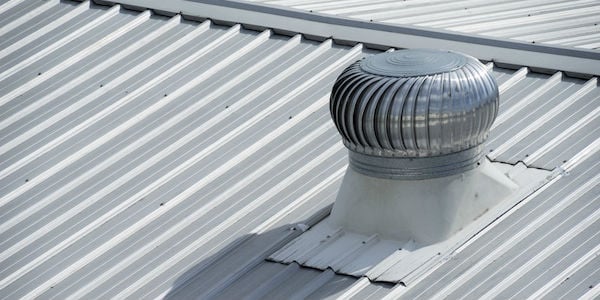The best ventilation solution for tile roof applications in areas where rain or snow may be a concern.
Which is better attic fan or o hagin vents.
Ridge vent or turbine.
Unlike ridge vents attic fans use electricity and need regular maintenance to keep working properly.
A roof turbine requires wind for operation.
An attic fan works by exchanging the hot air in your attic space for fresh air pulled through the vents.
This will help to avoid premature damage to the shingles or mold building up in moist hot.
If air is drawn in through the ridge vent while it s raining it might pull rainwater in with it which could lead to leaking or mold in the attic.
The turbine has a series of vanes that rotate as wind passes through sucking air out of the attic.
Without any air movement temperatures in the attic soar in summer and plunge in winter.
I believe mine vents through the soffit.
Iliving 800 cfm shutter exhaust fan at amazon this fan can easily remove excess heat moisture and odor from any space up to 1 200 square feet.
In this case the ridge vent pulls its intake air from the power fan which can lead to weather infiltration and poor ventilation along the underside of the roof deck.
It could reverse the natural flow of hot air out the ridge vent.
Flat roof vents have no moving parts to break or squeak but don t vent as much air as wind driven vents.
Choosing a ridge vent or an attic fan.
If you have suitable intake venting a ridge vent might be a better.
Quietcool smart 2830 cfm power gable mount attic fan at amazon this model is our top pick for its ease of use simple installation and maximum energy efficiency best budget.
Can you vent a bathroom fan through the roof ridge vent versus a vent directly on the roof.
Combining an attic power vent fan with a ridge vent is usually not recommended because.
When you are deciding between a ridge vent or an attic fan consider the needs of the attic.
Which is better for attic ventilation.
In addition to all the design construction features and color choices of the o hagin standard line this patent pending attic vent features an interior stainless steel diffuser that breaks down wind driven rain and snow before it can enter the attic space.
Without ventilation unfinished attic spaces can end up having stagnant air.

